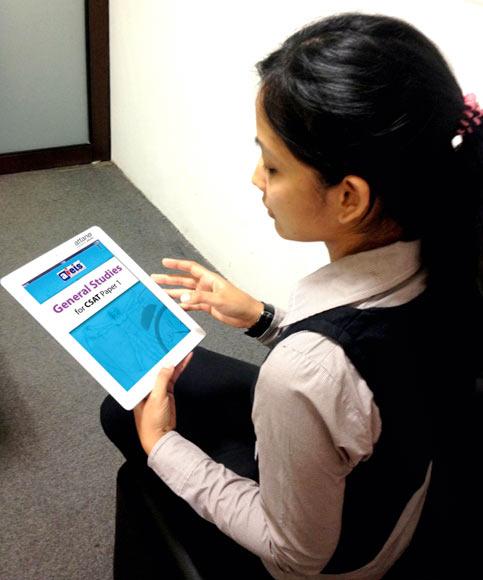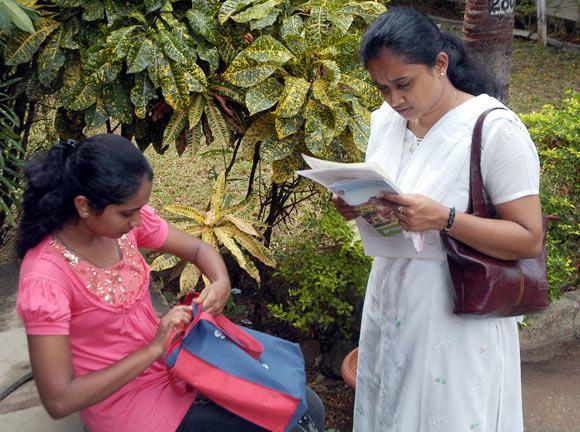 | « Back to article | Print this article |
Want to crack the Civil Services Aptitude Test?
If the CSAT is on your radar this year, then you would have been preparing for some time now, already applied for the examination in February, and must be revising very hard for the impending Preliminary test on May 26, 2013.
The Civil Services Aptitude Test, or CSAT, is a test conducted by the UPSC (Union Public Service Commission) every year to select candidates for the Civil Services Mains exams.
Those who pass the Mains and interview round get to join the prestigious Indian Government services like the IAS, IPS, and so on.
About 300,000 people are expected to take the test this year, of which only 12,000 people will qualify for the Civil Services (Mains) exam.
This means that if you want employment in the Civil Services, then not only is it important to study hard, but it is also in your best interests to study smart.
Preparing for this test requires every candidate to be well-versed in every aspect of how our country runs and how the government functions -- from technology, health, science, and the environment, to the economy, markets, polity, and current affairs.
In competitive exams there are a lot of things you need to learn and later recall. So it's very important for you to plan and allocate some time for revision.
By now, you should have completed the core of your studies for the test.
Do you have a plan in place for revising what you have studied?
The CSAT consists of two objective-type question papers of 200 marks and two hours' time for each paper.
One is on General Studies and the other is on General Aptitude.
If you spend some time on the internet researching the CSAT pattern of questions, you will also find claims about Paper 1 being extremely difficult, and that you need to put in at least 400 hours of rigorous study to qualify for the CSAT (Mains).
Don't panic. And don't be deterred by what other people say and what you might read.
You've already put in the hours, so now it's time to make sure that what you've studied is top of mind.
Here are some pointers that will hold you in good stead for the exam ahead.
Please click NEXT to continue reading...
Attano provides interactive learning solutions online
Manage your time
This might seem obvious, but unless you have a plan in place, you're going to find that you're squandering away time in the smallest ways, but it all adds up!
Preparing for the CSAT isn't just about schooling your mind to retain as much information as possible.
You need to revise regularly, against a timetable that best suits you.
Create a timetable that accounts for revision on a daily and weekly level.
Allot some time in your schedule to making sure you are up to date with current affairs.
And then apply the concepts you have been studying to present situations.
Do not study topics or concepts in isolation -- it is better to understand and establish a correlation between related concepts from other subjects and current events and happenings.
Portion your preparation
Prepare according to a proper strategy.
Remember that the examination is designed to evaluate a sharp memory and basic retention power.
Work towards improving these aspects by portioning your learning into easily digestible chunks.
Simplify what you learn by sifting what is necessary to know, from what is nice to know.
Make brief notes for each chapter and subject so that the salient points are immediately accessible.
Test your preparation
Attempt questions at the subject level.
This will help you identify areas of strength, and more importantly, areas of weakness.
Resolving gaps in knowledge, and retention, is critical for a competitive exam like the CSAT.
There are tools and tests available in the market today that allow for self-assessment at the subject level.
Online or electronic versions of these tests are especially helpful since they allow you to take a test, and you can re-test as many times as you want, as well as keep track of your performance, and compare scores.
Take a mock
It doesn't matter how much you've studied, but if you haven't prepared yourself under 'exam conditions', then you are at a psychological disadvantage.
The best way to minimise the stress you are likely to encounter during an actual exam is to take a mock exam.
Try and re-create your environment so that it mimics the actual exam conditions as closely as possible.
Physically, from an uncomfortable seat, and the fact that it is the hottest time of year, to uninterrupted time during which you will attempt a mock version of the CSAT.
A timer will help you track how long you spend on the sections, and attempting a mock will give you a realistic idea of your time management for the exam itself.
Try a mock, and you will know how prepared you are, from a knowledge and readiness perspective.
Prepare smart, and the doors to a prestigious government job are just a few steps away!




